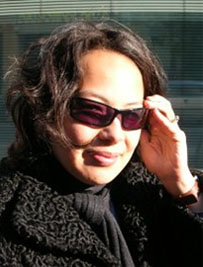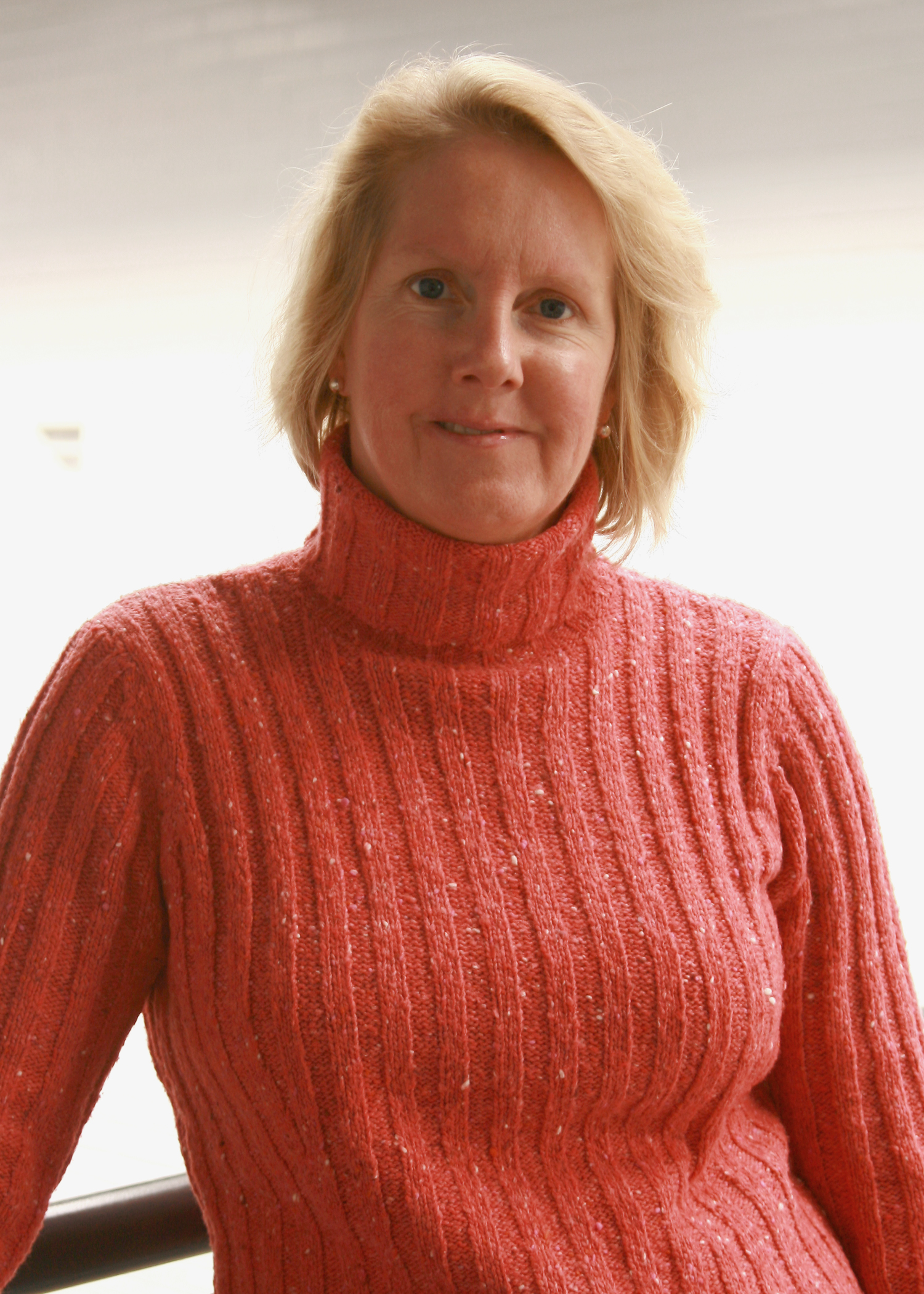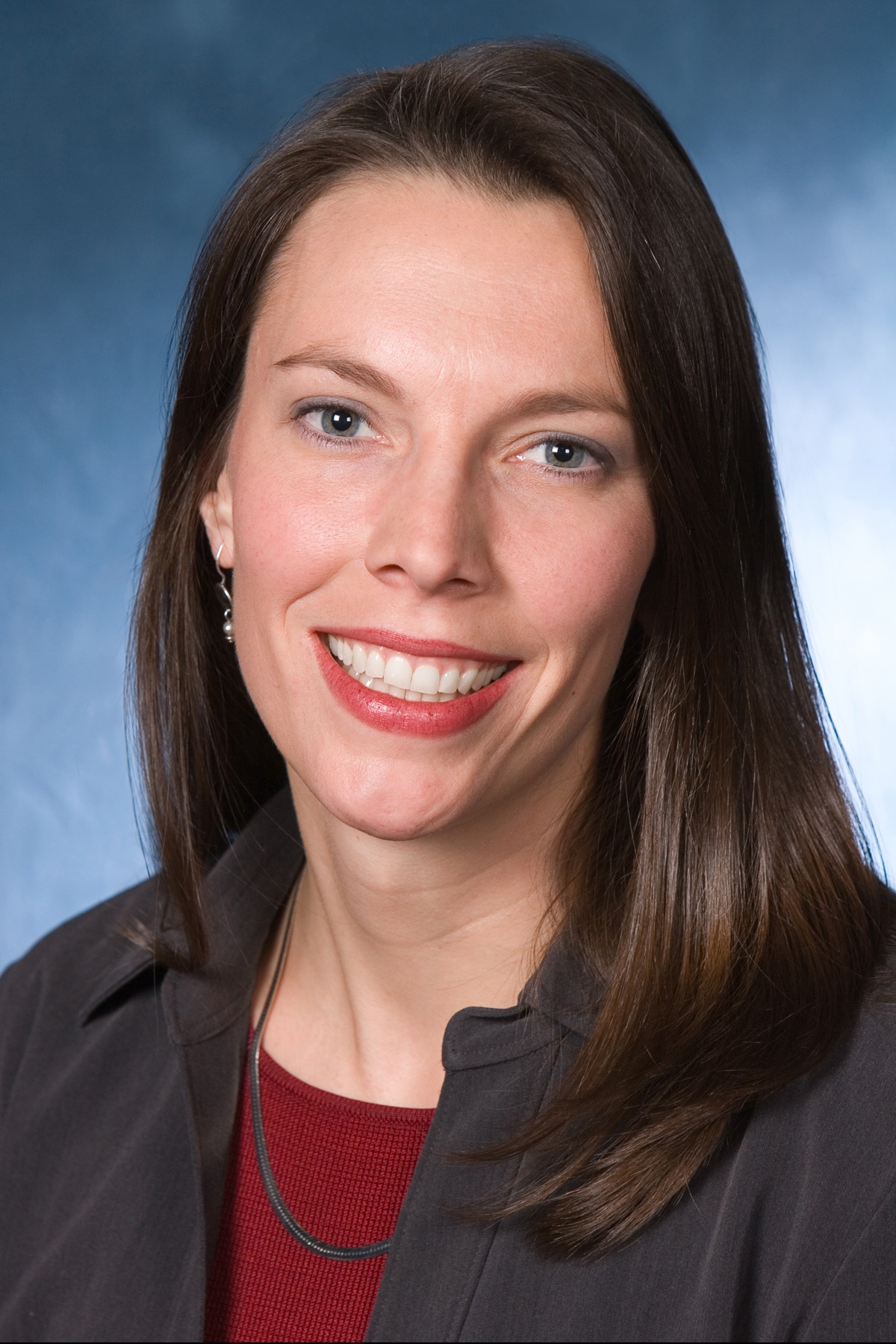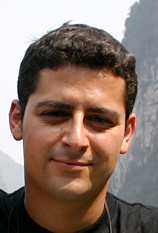The Consortium is proud to welcome six new consulting researchers and a postdoctoral researcher to the team. Find out more about them inside, or on our "People" page.
Nancy Baym is an Associate Professor of Communication Studies at the University of Kansas, where she teaches about communication technology, interpersonal communication and qualitative research methods. She pioneered the study of online community and fandom in the early 1990s, writing about how soap opera fans built relationships with one another while transforming television viewing into a collaborative endeavor. Her book Tune In, Log On: Soaps, Fandom and Online Community (Sage, 2000) synthesizes that work. Her recent publications include "The New Shape of Online Community: The Case of Swedish Independent Music Fandom" in First Monday, as well as articles in New Media & Society, The Handbook of New Media, and The Information Society. With Annette Markham, she is co-editor of Internet Inquiry: Conversation about Method (forthcoming from Sage), a book examining how exemplary qualitative researchers manage the challenges raised when studying the internet. She is currently studying the "friend" relationship in the music-oriented social network site Last.fm and writing a book, Personal Connections in a Digital Age, about digitally-mediated community, relationships and social networks for Polity Press. She was a co-founder of the Association of Internet Researchers and served as its President. She blogs at OnlineFandom.com

Abigail (Gail) Derecho is currently on faculty at Columbia College Chicago, in the Program in Cultural Studies. In Fall 2008, she will join the faculty of UC Berkeley as an Assistant Professor in The Berkeley Center for New Media and the Department of Theater, Dance & Performance Studies. She researches intersections of minority discourse with artistic appropriations, especially digital appropriations such as sampling, online fan productions, game mods, and audio and visual mash-ups; Internet piracy and "torrent culture"; narrative serializations in digital contexts; and "techno-orientalism," or Hollywood sci-fi's equation of futuristic technologies with Asia and Asianness. In June 2008, she will be awarded her Ph.D. by Northwestern University's Program in Comparative Literary Studies and the Department of Radio/Television/Film. Her dissertation, "Illegitimate Media: Race, Gender, and Censorship in Digital Remix Culture" argues that digital remix was largely invented by African Americans and Anglo American women, and that Culture Wars-era debates over representations of race and sex severely constrained these nascent cultural forms. Her article "Archontic Literature: A Definition, a History, and Several Theories of Fan Fiction" appears in Fan Fiction and Fan Communities in the Age of the Internet, eds. Karen Hellekson and Kristina Busse, and she is currently co-editing a volume on soap operas, Searching for Soaps' Tomorrow, with Sam Ford and C. Lee Harrington. She can be reached at abigail.derecho@gmail.com.

Jonathan Gray is an Assistant Professor of Communication and Media Studies at Fordham University. He is currently working on two books for NYU Press, one about film and television "paratexts" - all those things that surround film and television, from games to trailers, spinoffs to spoilers, toys to hype, reviews to fan creations - and the other a co-edited collection (with Jeffrey P. Jones and Ethan Thompson), Satire TV: Comedy and Politics in a Post-Network Era. Other books: Television Entertainment (Routledge, 2008); Watching with The Simpsons: Television, Parody, and Intertextuality (Routledge, 2006); Fandom: Identities and Communities in a Mediated World (NYU Press, 2007), edited with Cornel Sandvoss and C. Lee Harrington); and Battleground: The Media (Greenwood, 2008), an encyclopedia of media hot-button issues, edited with Robin Andersen. His research examines the interactions of entertainment media and audiences, with particular interest in parody and satire, transmedia storyworlds, and the changing nature of "television." He has degrees from University of British Columbia (B.A. in English), University of Leeds (M.A. in Literature from Commonwealth Countries), and Goldsmiths College, University of London (M.A. and Ph.D. in Media and Communication Studies). Jonathan writes at The Extratextuals and can be reached at jongray@fordham.edu.

C. Lee Harrington is Professor of Sociology and Affiliate of the Women's Studies Program at Miami University. Her areas of research include television studies, fan studies, and the sociology of law. Her long research collaboration with Denise D. Bielby has focused on the daytime soap opera genre, its audiences and fans, and its global circulation. Their joint work includes Soap Fans: Pursuing Pleasure and Making Meaning in Everyday Life (1995, Temple U. Press), the edited collection Popular Culture: Production and Consumption (2001, Blackwell), and an in-press book on global television distribution titled Global TV: Exporting Television and Culture in the World Market (2008, NYU Press). She also recently co-edited an anthology on fandom aptly titled Fandom: Identities and Communities in a Mediated World (2007, NYU Press; with Jonathan Gray and Cornel Sandvoss). Harrington has also published on issues of sexual representation on television in Feminist Media Studies and Journal of Broadcasting & Electronic Media. Current research projects include a study of acting and aging on daytime soaps, and a study of media framing of death row volunteers (inmates who want to be executed). She received her PhD in Sociology from the University of California-Santa Barbara.
Derek Johnson is a PhD Candidate in Media and Cultural Studies at the University of Wisconsin, Madison. His dissertation examines the historical development of the media "franchise" as a form based on shared intellectual property networks, as a specific set of production and consumption practices, and as a discourse used to make sense of media culture. Interested in the organization of culture across media platforms, his research spans a wide range of industries (including film, television, video games, comics, and licensed merchandising) and encompasses issues of narrative theory, audience reception, public sphere discourse, as well as media economics and policy. His recent publications include "Inviting Audiences In: The Spatial Reorganization of Production and Consumption in 'TVIII'" (New Review of Film and Television, 2007), "Fan-tagonism: Factions, Institutions, and Constitutive Hegemonies of Fandom" (Fandom: Identities and Communities in Mediated Culture, edited by Gray, Harrington, and Sandvoss, 2007), and "Will the Real Wolverine Please Stand Up?: Marvel's Mutation from Monthlies to Movies" (Film and Comic Books, edited by Gordon, Jancovich, and McAllister, 2007).

Amanda D. Lotz is an assistant professor of Communication Studies at the University of Michigan. She is the author of The Television Will Be Revolutionized (New York University Press, 2007), in which she examines the institutional adjustments of the U.S. television industry since the 1980s on the medium's role as a cultural institution and Redesigning Women: Television after the Network Era (University of Illinois Press, 2006), which explores the rise of female-centered dramas and cable networks targeted toward women in the late 1990s as they relate to changes in the U.S. television industry. She also has published articles in Critical Studies in Media Communication, Feminist Media Studies, Media, Culture & Society, Communication Theory, Journal of Broadcasting and Electronic Media, Television & New Media, Screen, Journal of Popular Film and Television, and Women and Language.
Amanda is currently working on an edited collection that brings together established television scholars writing new chapters in their areas of expertise that reconsider how programming forms other than prime-time series (such as sports, news, soap operas, and made-for-television movies, among others) have been affected by the wide-ranging industrial changes instituted over the past twenty years. She also has an emerging project exploring men and masculinity in contemporary television dramas and is in the preliminary stages of developing an ethnographic study of new patterns of television use. Amanda has participated in many media industry programs for academics, such as the NATPE Faculty Fellow and Faculty Development Grant Programs, AEF Visiting Professor Program, and the ATAS Faculty Seminar, and has been involved in consulting activities with Competing Values and NBCU owned-and-operated stations.

Esteve Olle is a Postdoctoral Fellow in the Program in Comparative Media Studies at MIT, where he also works with the Convergence Culture Consortium on a research project about the changing structure of media organizations. He holds a Ph.D. in sociology from the Internet Interdisciplinary Institute of the Open University of Catalonia, with a focus on the uses of new media in public organizations. He has also worked as an e-governance freelance consultant for several European institutions. Before coming to MIT, Esteve spent three years doing research on globalization theory at the London School of Economics. He has published articles on these and other topics, and his first book, which is about the uses of new media in Barcelona's City Council, will be published in 2008. His current research looks at the nature, convergence practices (production/reception), and sociocultural processes involved in new television products that claim a strong relation with social/scientific knowledge.



